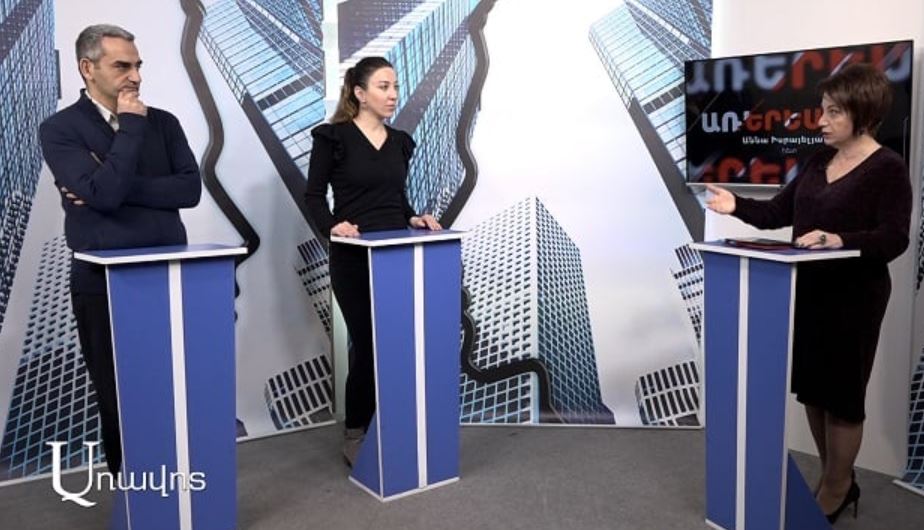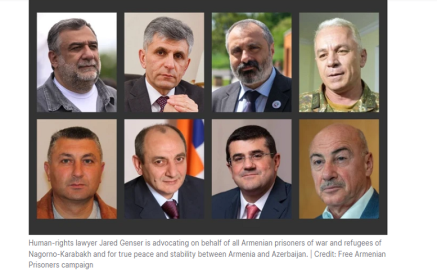On January 30-31, the International Court of Justice held hearings on requests to apply temporary measures in the cases of Armenia vs. Azerbaijan and Azerbaijan vs. Armenia. Armenia specifically demands that Azerbaijan ensure the uninterrupted, free movement of all people, vehicles, and cargo along the Lachin Corridor in both directions. However, there is also a point of view that expecting the opening of the Berdzor corridor through legal processes is hopeless. Genocide expert and candidate of historical sciences Suren Manukyan, the guest of Aravot’s “Areresum” (“Confrontation”) program, referring to this point of view, said: “I have always been surprised at the legal nihilism of our people. We never took legal arguments seriously. And during the past 20 years, when we had all the opportunities to try to achieve the recognition of Artsakh or at least the strengthening of our rights through legal means, we did not deal with it, saying with the ideas of the representatives of the “school of political realism” that “force begets rights” and only by force. It’s the actions that solve the problem. Of course, in today’s warring world, my words may sound naive when wars are happening in the center of Europe and different parts of the world. Still, in any case, I think that even that military power in today’s world constantly tries to be used only after legal justifications. When Russia entered (attacked, invaded – use whatever term you want) into Ukraine, they attempted to bring historical arguments; the Russian president tried to justify their entry historically. Legal decisions were also made, emphasizing possible genocidal actions and so on. In other words, legal factors are crucial and should be accumulated to be applied in the future. And unlike us, Azerbaijan has done it very well for many years, at different levels, in various meetings, continually adopting resolutions, which we always treated with condescension. But then we saw they took those statements off their shelves during the war. And I’m not saying very much, but it may have influenced some neutral states to take a stand to some extent”.
Legal nihilism, in this case, may also be facilitated by the following: in December 2022, the ECHR was examining the issue of applying an interim measure regarding the immediate unblocking of the Lachin Corridor. ECHR applied interim measures against Azerbaijan. The control of the implementation of that judgment is placed on the Committee of Ministers of the CE. But until now, Azerbaijan has yet to take any steps regarding the performance of the decision of the ECHR. In response to this circulating argument, the other guest of the program, Siranush Sahakyan, head of the Center for International and Comparative Law, said: “The ECHR decision had a significant impact on political processes. If we compare the political support for Armenia and Artsakh before the court verdict and after the verdict, we will see a significant intensification. The judgment of the European Court is a very legitimate basis for the interested states to be able to make unilateral statements. In general, we have this tendency for international partners to try to show a balanced approach towards Armenia and Azerbaijan. If they condemn one state, they will also have something to say about the other state. But in this case, we had one-sided condemnations, and the Court’s decision impacted political processes.
On the other hand, we cannot say that the judgment of the European Court is not being implemented. First, the decision did not address general unblocking. The Court obliged Azerbaijan to ensure the movement of patients and persons with humanitarian problems. And we see that the activities of the Red Cross became more effective after the judgment of the European Court. As for the people left without shelter and means of existence on the road, there is only a partial implementation. And this is also to explain that the European Court sent a notice to the Committee of Ministers to increase the pressure on Azerbaijan through political processes.
And the last consideration: we understood that Armenia could not solve the Artsakh problem by military means. We are not successful in the military field at the moment. It is a loser in political negotiations. Armenia is on an unequal footing compared to others. We have no alternative but the legal platform.
Read also
Siranush Sahakyan also predicted that the interim measure would be implemented. “And under certain circumstances, the corridor will open. How long-lasting or repetitive that action will be is difficult to predict. But I think opening and closing will be periodic, which is also a psychological weapon against Armenians of Artsakh and can lead to arbitrary decisions. With each reopening, we’ll have a declining population.”
The entire conversation is in the video
Anna ISRAYELYAN




























































